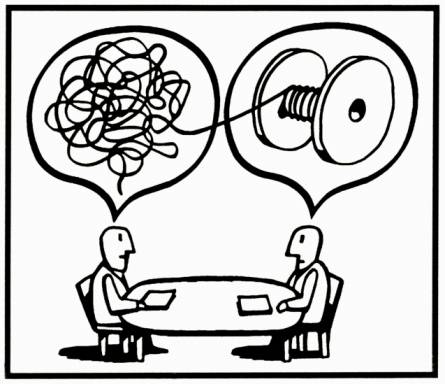The world, both our customers and our own, is best characterized by turbulence.
By this, I mean each of us, at least if we are paying attention, is pummeled by information overload/overwhelm, massive disruption, escalating change, increasingly confusing choices, increasing complexity, transformation, time compression, risk, uncertainty, and distraction.
Too often, our customers are struggling to cope, to keep up, to understand, often to survive. At the same time, they are trying to learn, to grow, to improve, to achieve.
In the face of all of this, how can we create the greatest value with our customers, how can we be most helpful?
I think it is encapsulated in the concept of “Sense-Making.”
By that, I mean, helping the customer make sense of the turmoil and turbulence they face. Helping them sort through everything thy are being pummeled with, helping them identify a path and chart a course forward, to solve their problems, to achieve, in fact to thrive, despite the turbulence.
I believe sales people are among the best to do that–at least in the context of the problems that we solve. Whether it is helping with massive, enterprise wide change, or taking something off their plate, so they don’t have to worry about it.
We are the best equipped to help our customers manage, learn, and grow, because we see others addressing the same issues every day. We can help them understand and navigate the issues they face, providing greater clarity.
Being a sense maker requires, perhaps, different skills and mindsets. We have to have the empathy to understand how our customers feel. We have to understand them, their businesses, their markets, their customers. Perhaps, it’s helping them feel less alone, that they are the only people/organizations facing these issues.
We have to help them figure out where they want to go, how they should be thinking about the issues and the potential solutions. We have to help them learn how to mobilize within their own organizations, navigating both their problem solving and buying processes.
These are non trivial issues, there are no easy solutions, but we can help them discover these and move forward. We can help them make sense of what they face and what they want to achieve.
Afterword: I will be expanding on the concept of Sense-Making in other posts. Increasingly, this single concept will become the biggest area in which sales people can help their customers.
Afterword: One of the most important books you can read is: Sensemaking: The Power Of Humanities In The Age Of The Algorithm, Christian Madsjberg. While Madsjberg addresses far broader issues, the principles apply to everything we do as sales people, in complex B2B sales and as leaders within our own organizations.

Excellent article David. Your article shows how sales reps can elevate their value by addressing their clients needs to learn, to grow, to improve, to achieve, and of course, to deal with the uncertainty of an increasingly complex business and technology environment.
Hi Dave!
One of the things I love about your blog is that your topics tend to be related to each other over a time frame. February’s theme seems to be ‘engagement is hard, you can’t skimp on it with SAL/AI/etc., that’s why you have sales reps’.
I’m looking very much forward to your series of articles on Sensemaking. As an engineer who is now in sales, I struggle with this concept and am in awe of my coworkers who can help others in that way. It’s one honey of a skill! But so difficult.